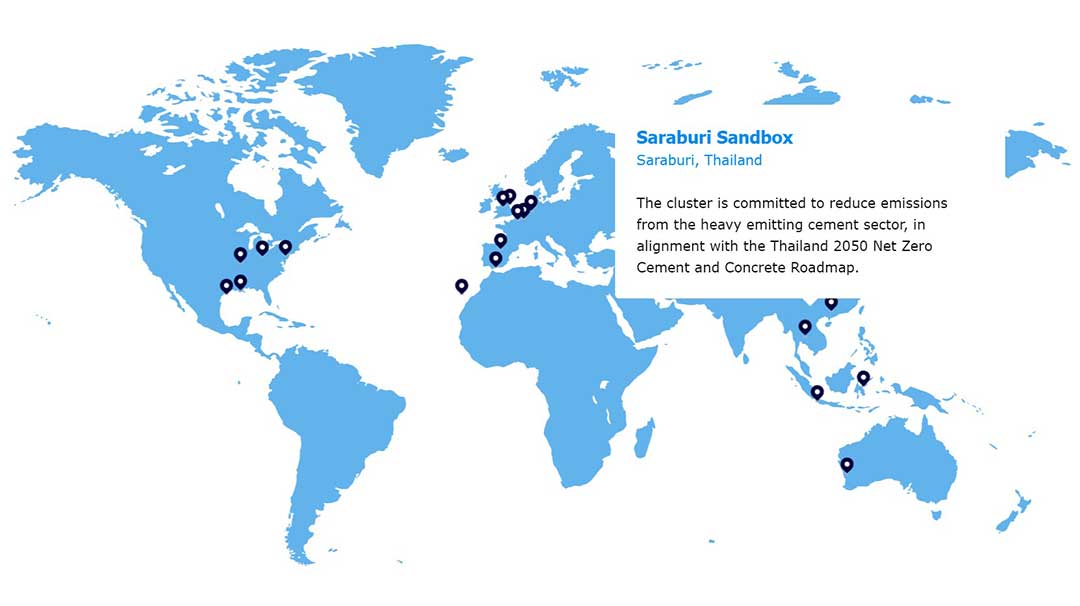Saraburi Sandbox joins the World Economic Forum’s Transitioning Industrial Clusters initiative, becoming Thailand’s first member of the Forum-led effort driving economic growth, employment and decarbonization globally. Saraburi Sandbox is the third industrial cluster in ASEAN and the 21st globally joining this global community.
Saraburi Sandbox stands out for its success in bringing together the public and private sectors and civil society to create a PPP (Public-Private-People) partnership. The Saraburi Sandbox initiative is led by the Thai Cement Manufacturers Association, the Federation of Thai Industries in Saraburi, and Saraburi Province as the three founding partners, alongside more than 20 other organizations and 7 ministries.
This collaboration can generate significant national revenue through job creation, GDP stimulation, and a concerted effort to reduce greenhouse gas emissions across five areas as outlined in the Nationally Determined Contributions (NDCs): energy and transportation, industrial processes and product use, waste management, agriculture, and land use, land-use change, and forestry.
Additionally, Saraburi Province is the largest cement producer in Thailand, accounting for 80% of the country’s cement production capacity. The goal is to unlock new possibilities in laws and regulations, funding, technologies and governance. Not only these do help the cement industry achieve its long-range net zero GHG emissions by 2050, but also create a blueprint for a low-carbon city and tackle global warming.
The World Economic Forum played an important role in elevating the cluster’s strategy to drive economic growth, generate employment and accelerate decarbonization for the regional cement sector, supporting Saraburi Sandbox in creating a low-carbon city
“Welcoming the first industrial cluster in Thailand reinforces the ambition to accelerate the energy transition in South East Asia. The Saraburi Sandbox offers a model for an integrated, cluster-level approach. The Sandbox’s 23 partner companies link the transition of the local cement industry, which accounts for 80% of the total national output, with regional emissions reduction, job creation across sectors and boosting the GDP,” said Roberto Bocca, Head of the Centre for Energy and Materials and Member of the Executive Committee at the World Economic Forum.

About the World Economic Forum’s Transitioning Industrial Clusters initiative:
The initiative, which is supported by Accenture and EPRI, aims to mobilize the full economic, employment and energy potential of industrial clusters. Through a structured approach to financing, policy, technology and partnerships, combined with best practices from committed clusters, the Initiative is working to improve cooperation and common vision around the energy transition, jobs and growth.
Published on: Sep 24, 2024